Premium Only Content
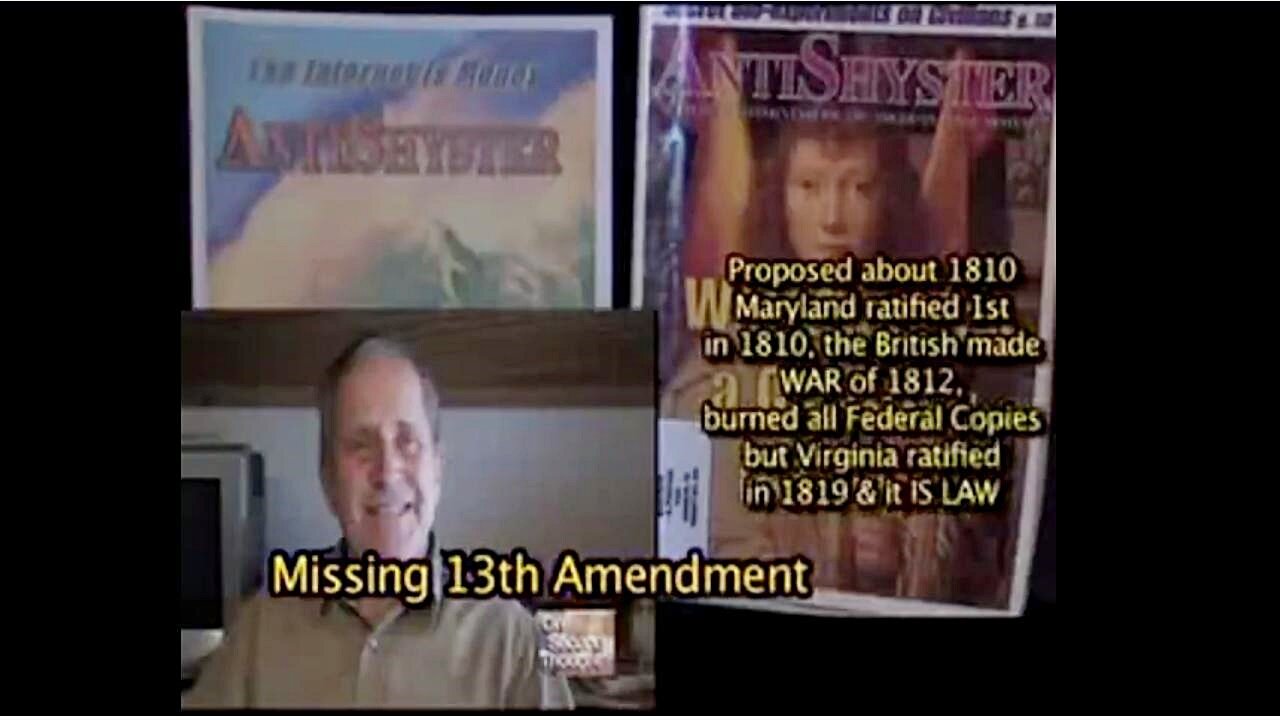
Thee MISSING Original 13th Amendment, Part 1 ~ Robert Self (2011)
ARTICLE: The True Back Story Of The Missing 13th Amendment
The Missing 13th Amendment
“TITLES OF NOBILITY” AND “HONOR”
Date 08/01/91 - David Dodge, Researcher - Alfred Adask, Editor
TITLES OF NOBILITY” AND “HONOR”
In the winter of 1983, archival research expert David Dodge, and former Baltimore police investigator Tom Dunn, were searching for evidence of government corruption in public records stored in the Belfast Library on the coast of Maine. By chance, they discovered the library’s oldest authentic copy of the Constitution of the United States (printed in 1825). Both men were stunned to see this document included a 13th Amendment that no longer appears on current copies of the Constitution. Moreover, after studying the Amendment’s language and historical context, they realized the principle intent of this “missing” 13th Amendment was to prohibit lawyers from serving in government.
So began a seven year, nationwide search for the truth surrounding the most bizarre Constitutional puzzle in American history — the unlawful removal of a ratified Amendment from the Constitution of the United States. Since 1983, Dodge and Dunn have uncovered additional copies of the Constitution with the “missing” 13th Amendment printed in at least eighteen separate publications by ten different states and territories over four decades from 1822 to 1860.
In June of this year (1991), Dodge uncovered the evidence that this missing 13th Amendment had indeed been lawfully ratified by the state of Virginia and was therefore an authentic Amendment to the American Constitution. If the evidence is correct and no logical errors have been made, a 13th Amendment restricting lawyers from serving in government was ratified in 1819 and removed from our Constitution during the tumult of the Civil War.
Since the Amendment was never lawfully repealed, it is still the Law today. The implications are enormous.
The story of this “missing” Amendment is complex and at times confusing because the political issues and vocabulary of the American Revolution were different from our own. However, there are essentially two issues: What does the Amendment mean? and, Was the Amendment ratified? Before we consider the issue of ratification, we should first understand the Amendment’s meaning and consequent current relevance.
MEANING of the 13th Amendment
The “missing” 13th Amendment to the Constitution of the United States reads as follows:
“If any citizen of the United States shall accept, claim, receive, or retain any title of nobility or honour, or shall without the consent of Congress, accept and retain any present, pension, office, or emolument of any kind whatever, from any emperor, king, prince, or foreign power, such person shall cease to be a citizen of the United States, and shall be incapable of holding any office of trust or profit under them, or either of them.” [Emphasis added.}
At the first reading, the meaning of this 13th Amendment (also called the “title of nobility” Amendment) seems obscure, unimportant. The references to “nobility”, “honour”, “emperor”, “king”, and “prince” lead us to dismiss this amendment as a petty post-revolution act of spite directed against the British monarchy. But in our modern world of Lady Di and Prince Charles, anti-royalist sentiments seem so archaic and quaint, that the Amendment can be ignored.
Not so.
Consider some evidence of its historical significance: First, “titles of nobility” were prohibited in both Article VI of the Articles of Confederation (1777) and in Article I, Sect. 9 of the Constitution of the United States (1778); Second, although already prohibited by the Constitution, an additional “title of nobility” amendment was proposed in 1789, again in 1810, and according to Dodge, finally ratified in 1819. Clearly, the founding fathers saw such a serious threat in “titles of nobility” and “honors” that anyone receiving them would forfeit their citizenship. Since the government prohibited “titles of nobility” several times over four decades, and went through the amending process (even though “titles of nobility” were already prohibited by the Constitution), it’s obvious that the Amendment carried much more significance for our founding fathers than is readily apparent today.
HISTORICAL CONTEXT
To understand the meaning of this “missing” 13th Amendment, we must understand its historical context — the era surrounding the American Revolution.
We tend to regard the notion of “Democracy” as benign, harmless, and politically unremarkable. But at the time of the American Revolution, King George III and the other monarchies of Europe saw Democracy as an unnatural, ungodly ideological threat, every bit as dangerously radical as Communism was once regarded by modern Western nations. Just as the 1917 Communist Revolution in Russia spawned other revolutions around the world, the American Revolution provided an example and incentive for people all over the world to overthrow their European monarchies.
Even though the Treaty of Paris ended the Revolutionary War in 1783, the simple fact of our existence threatened the monarchies. The United States stood as a heroic role model for other nations, that inspired them to also struggle against oppressive monarchies. The French Revolution (1789-1799) and the Polish national uprising (1794) were in part encouraged by the American Revolution. Though we stood like a beacon of hope for most of the world, the monarchies regarded the United States as a political typhoid Mary, the principle source of radical democracy that was destroying monarchies around the world. The monarchies must have realized that if the principle source of that infection could be destroyed, the rest of the world might avoid the contagion and the monarchies would be saved.
Their survival at stake, the monarchies south to destroy or subvert the American system of government. Knowing they couldn’t destroy us militarily, they resorted to more covert methods of political subversion, employing spies and secret agents skilled in bribery and legal deception — it was, perhaps, the first “cold war”. Since governments run on money, politicians run for money, and money is the usual enticement to commit treason, much of the monarchy’s counter-revolutionary efforts emanated from English banks. DON’T BANK ON IT
Read more: https://themillenniumreport.com/2016/04/the-true-back-story-of-the-missing-13th-amendment/
-----------------
Video Source: Robert Self
https://old.bitchute.com/video/bvuwkVWmSHMD/
-
 4:08
4:08
Truths Unlimited
3 hours agoThis Wise Woman Explains How Insane the Whole Concept of "Birthright Citizenship" Is
458 -
 59:28
59:28
Flyover Conservatives
23 hours agoInsider Reacts to Trump’s 100 Hours: Davos, WHO, Climate Change, DEI… - Alex Newman | FOC Show
41.6K4 -
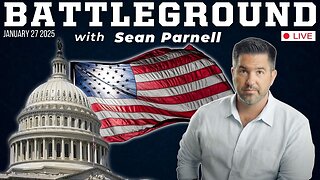 1:04:30
1:04:30
Battleground with Sean Parnell
10 hours agoPresident Trump Is Flooding The Zone
127K12 -
 2:12:53
2:12:53
We Like Shooting
16 hours ago $0.62 earnedWe Like Shooting 595 (Gun Podcast)
16.6K -
 2:00:28
2:00:28
megimu32
6 hours agoON THE SUBJECT: 90s Toys, Fat Phobia, and Crying Libs!
25K2 -
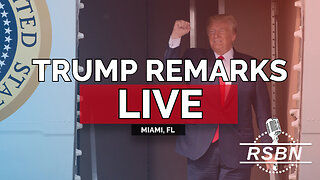 LIVE
LIVE
Right Side Broadcasting Network
14 hours agoLIVE REPLAY: President Trump Addresses House GOP in Doral, FL - 1/27/25
3,315 watching -
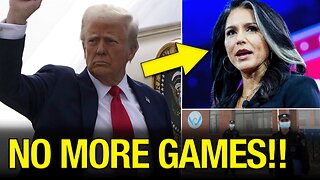 2:37:19
2:37:19
Robert Gouveia
8 hours agoTrump Addresses House Republicans; Tulsi Confirmation Fight; CIA Lab Leak
56.1K27 -
 54:38
54:38
LFA TV
1 day agoMankind Refuses the Way of Peace | TRUMPET DAILY 1.27.25 7pm
48.6K4 -
 1:41:27
1:41:27
2 MIKES LIVE
10 hours ago2 MIKES LIVE #171 Deep Dive Monday!
31.4K1 -
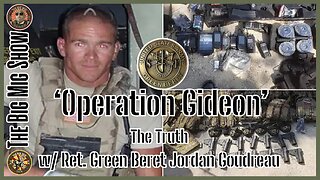 1:32:53
1:32:53
The Big Mig™
7 hours agoOperation Gideon, The Truth w/ Ret. Green Beret Jordan Goudreau
38.4K8